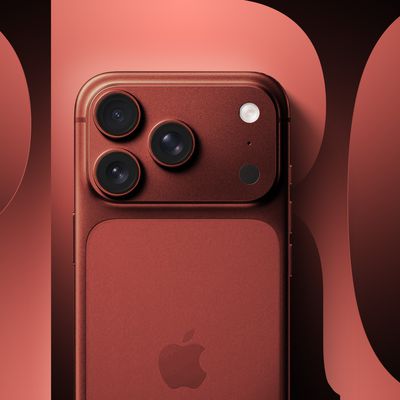Apple's Recent Hires from Broadcom Boost Rumors of In-House Baseband Chip Development
Apple recently hired two high-level baseband hardware engineers who left their longtime positions at Broadcom to join the team at Apple, reports AppleInsider. The discovery of these recent hires follows a report earlier this week that suggests Apple is assembling a team of engineers to develop its own baseband chips for future iPhone models. This baseband hardware controls the radio functions of a device, handling cellular connectivity details such as signal generation, modulation and more.

The first hire in January 2014 was RF engineer Xiping Wang, who spent over ten years at Broadcom as a Design Engineer and manager of Hardware Development Engineering. Wang was followed by principal engineer and Chip Lead Paul Chang, who joined Apple in February 2014. At Broadcom, Chang was a hardware lead, overseeing the team that developed baseband transceivers for Nokia and Samsung mobile devices.
All together, Apple has assembled at least 30 mid- and senior-level baseband software and hardware engineers from Broadcom and current iPhone baseband vendor Qualcomm over the past three years. Apple is also advertising more than 50 additional openings related to RF chip design, an indication that the build-up is not yet complete.
Apple currently purchases its baseband hardware from Qualcomm, but has recently made acquisitions that would bring more of its chip development in-house. Last year, Apple acquired low-power wireless chip provider Passif Semiconductor and is in talks to acquire Renesas SP Drivers, a division of Renesas Electronics that develops chips for smartphone displays.
These acquisitions are part of a larger move by Apple to control the development and production of its core technologies. This push started with the development of Apple's ARM-based "A" series processor that powers its iPhone, iPad, iPod touch and Apple TV. The A7 is the most recent processor in the series and is described as providing "desktop class" performance for Apple's mobile devices.
Popular Stories
In his Power On newsletter today, Bloomberg's Mark Gurman said Apple will have a three-day stretch of product announcements from Monday, March 2 through Wednesday, March 4. In total, he expects Apple to introduce "at least five products."
Subscribe to the MacRumors YouTube channel for more videos.
A week ago, Apple invited selected journalists and content creators to an "Apple Experience" in...
Apple's software engineers are testing iOS 26.3.1, according to the MacRumors visitor logs, which have been a reliable indicator of upcoming iOS versions.
iOS 26.3.1 should be a minor update that fixes bugs and/or security vulnerabilities, and it will likely be released within the next two weeks.
Last month, Apple released iOS 26.2.1 with bug fixes and support for the second-generation...
Apple is expected to launch a new foldable iPhone this year, based on multiple rumors and credible sources. The long-awaited device has been rumored for years now, but signs increasingly suggest that Apple will release its first foldable device in 2026.
Subscribe to the MacRumors YouTube channel for more videos.
Below, we've collated an updated set of key details that have been leaked about ...
The special new color that Apple is considering for the iPhone 18 Pro and iPhone 18 Pro Max this year is red, according to Bloomberg's Mark Gurman.
Specifically, he said that Apple is testing a "deep red" finish for the two devices.
If this rumor materializes, it would be the first time that the Pro and Pro Max models ever come in red, and the iPhone 18 Pro models would be the first...
Apple has been developing a more affordable version of the MacBook, and it's rumored to be launching in under two weeks. This is going to be one of Apple's most unique Macs, because there hasn't really been anything quite like it before.
We've rounded up everything we know about the low-cost MacBook ahead of its March debut.
Design
Rumors about the MacBook's design make it sound a lot...





















